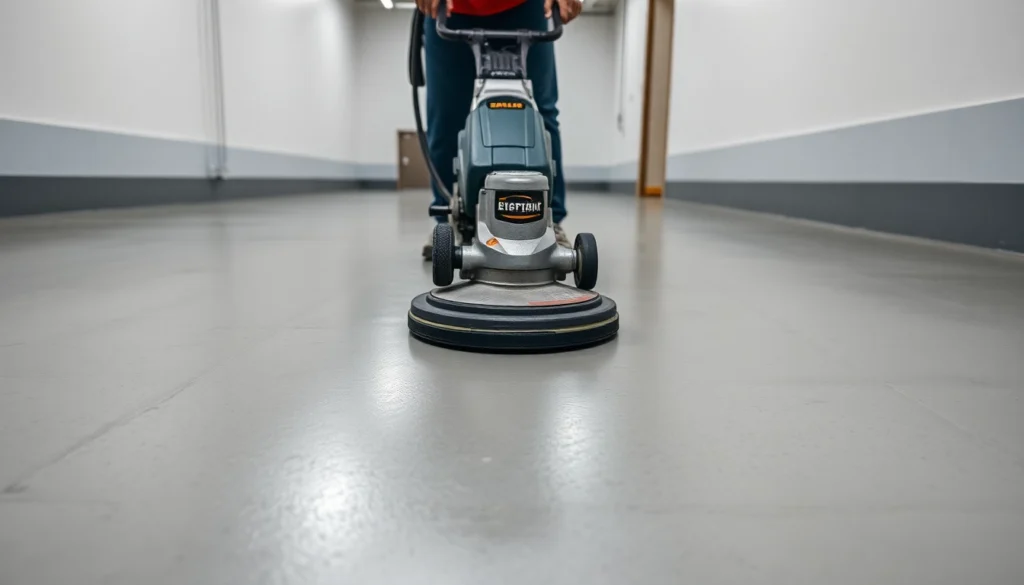
Understanding the Importance of Floor Preparation in Birmingham
When it comes to achieving professional, durable, and aesthetically pleasing flooring in Birmingham, thorough floor preparation is paramount. The city’s diverse building landscape—ranging from historic residential homes to modern commercial complexes—requires tailored preparation techniques that ensure the longevity and performance of new flooring installations. Proper preparation serves as the foundation of a successful flooring project, reducing future maintenance costs, preventing damage, and guaranteeing a flawless finish. Whether installing epoxy coatings, hardwood, or resin-based floors, investing in meticulous surface preparation is a cost-effective strategy that aligns with industry best practices.
For those seeking expert assistance, Floor preparation Birmingham involves specialized processes designed to optimize surface conditions before laying any floor covering. This article explores the critical aspects of floor preparation, the techniques employed by professionals, and how to select the right services to meet your specific project demands in Birmingham.
Why Proper Floor Preparation Matters
Enhanced Adhesion and Durability
One of the primary reasons for meticulous floor preparation is to ensure excellent adhesion of the subsequent flooring layer. Without proper surface treatment, many flooring failures—such as lifting, cracking, or delamination—occur prematurely. For instance, epoxy and resin floors require a clean, roughened surface to bond effectively, preventing costly repairs and downtime.
Surface Leveling and Smoothness
Uneven or cracked substrates can compromise the aesthetic appeal and structural integrity of a floor. Professional preparation involves leveling surfaces, filling gaps, and smoothing irregularities, resulting in a seamless, even surface that enhances both safety and visual quality.
Moisture Control and Prevention of Future Damage
In Birmingham’s climate, moisture intrusion poses a substantial risk, especially for concrete substrates. Proper testing and moisture mitigation techniques prevent future problems such as mold growth, warping, or efflorescence, which can severely impact the longevity of your flooring investment.
Common Challenges in Birmingham Flooring Projects
Variable Substrate Conditions
Birmingham’s older buildings often present uneven or deteriorated foundations that require extensive repair work. Addressing these issues promptly is critical for achieving a stable base.
High Moisture Levels
Groundwater seepage and humidity fluctuations necessitate careful moisture assessment to prevent post-installation issues.
Misalignment of Expectations and Budget Constraints
Cost considerations sometimes lead to shortcuts in preparation, risking future failure. Setting clear expectations and understanding the value of thorough prep work helps maintain quality standards.
Types of Floor Surfaces Requiring Preparation
Concrete Floors
Concrete is prevalent in both residential and commercial spaces. Proper preparation includes cleaning, grinding, and repairing cracks to ensure a solid foundation.
Existing Hardwood, Laminate, or Tile
Removal of old materials, leveling, and cleaning are essential steps before new surface application.
Asphalt and Subgrade Surfaces
These require stabilization and moisture control measures prior to top-layer installation.
Essential Techniques for Effective Floor Preparation in Birmingham
Diamond Grinding and Surface Smoothing
This industrial process uses diamond-embedded tools to grind and smooth concrete or other hard surfaces, removing coatings, adhesives, and unevenness. Diamond grinding is ideal for creating a durable, flat base suitable for resin or epoxy floors, and it minimizes dust and noise compared to older methods.
Concrete Repair and Stabilization
Cracked or deteriorated concrete must be repaired using epoxy injections, patching compounds, or concrete leveling techniques. These repairs restore structural integrity and prevent future degradation.
Moisture Testing and Subfloor Assessment
Before any preparation, professionals perform moisture tests—such as calcium chloride testing or hygrometers—to determine if additional moisture barriers are necessary. A comprehensive assessment includes measuring surface profile, pH level, and contamination to develop an appropriate preparation plan.
Choosing the Right Floor Preparation Services in Birmingham
Criteria for Selecting a Professional Contractor
Experience and certifications are key indicators of quality. Look for providers with proven track records in Birmingham, relevant industry accreditations, and positive client reviews. Technological capabilities, such as advanced grinding equipment and moisture testing tools, further signify competence.
Questions to Ask Before Hiring
- What specific preparation techniques do you employ?
- Can you provide references or case studies?
- What is your estimated timeline and budget for the project?
- Do you assess moisture and substrate integrity beforehand?
Cost Considerations and Budget Planning
While budget constraints are understandable, investing in high-quality floor preparation pays dividends in durability and overall savings. Obtain detailed quotes that itemize each phase of preparation and ensure no hidden charges compromise the project’s success.
Implementing Floor Preparation for Different Flooring Types
Preparing Subfloors for Resin and Epoxy Coatings
These floors demand a clean, dry, and profile-roughened surface. Steps include shot blasting or diamond grinding, followed by precise moisture testing to prevent coating failure. Proper surface preparation enhances chemical bond strength and ensures long-term performance.
Hardwood and Laminate Floor Surface Prep
Existing surfaces require removal of previous flooring, assessment of subfloor stability, and leveling. Underlayment installation and moisture barriers are also critical to prevent future issues like warping or mold growth.
Commercial vs Residential Floor Preparation Strategies
Commercial projects typically involve larger areas and more rigorous procedures, such as industrial grinding and concrete repair. Residential jobs may focus more on aesthetic refinements and compatibility with existing structures. Tailoring the approach for each setting guarantees optimal results.
Measuring Success: Ensuring Quality and Longevity in Birmingham
Performance Metrics and Inspection Tips
Key indicators of successful preparation include levelness (measured via a laser level), adhesion strength tests, and moisture content assessments. Inspectors should verify surface cleanliness, profile, and smoothness before proceeding with the final flooring layer.
Maintaining Your Floor After Preparation
Proper ongoing maintenance—such as cleaning with non-abrasive solutions and regulating indoor humidity—extends the lifespan of your floors. Consulting with professionals for periodic inspections ensures sustained performance.
Case Studies of Successful Floor Preparation Projects
In Birmingham’s commercial sector, impact flooring specialists reduced project downtime by employing diamond grinding coupled with moisture assessments, resulting in high-quality resin floors that withstand heavy traffic. Similarly, residential clients benefitted from meticulous repair and leveling, leading to smooth hardwood installations that last for decades.







